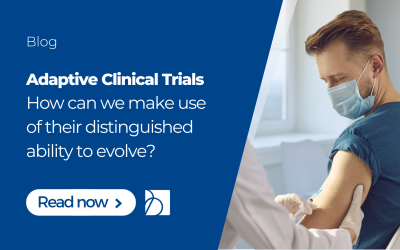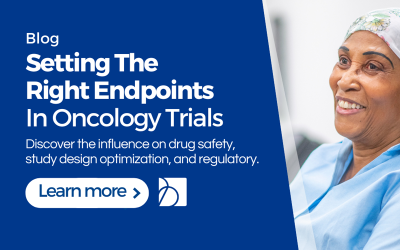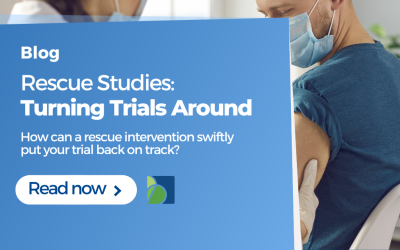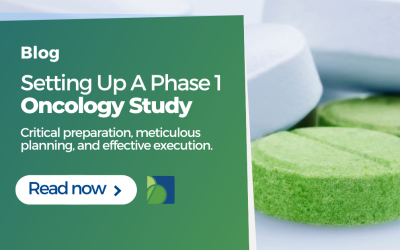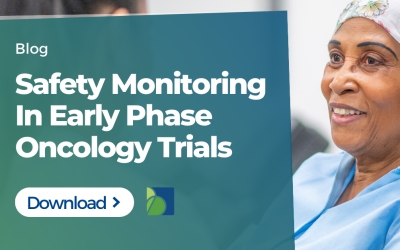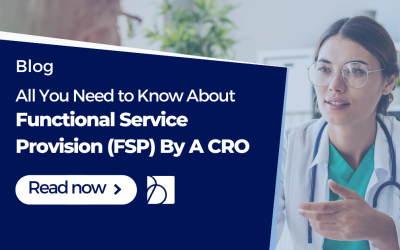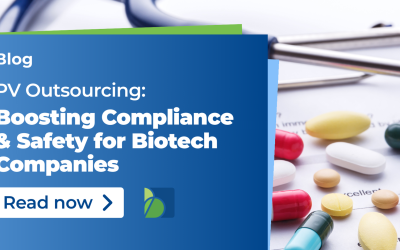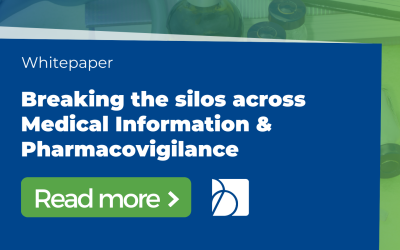
As oncology drug developers, you likely know that selecting the proper Contract Research Organization (CRO) for your Phase 1 clinical trial is a crucial step in bringing your treatment to the market. This article provides insights for oncology drug developers when selecting a CRO for an Early Phase Oncology Trial.
What is a CRO?
A CRO is a company that specializes in contract research and development. They help companies by providing the services they need to conduct their research – from designing and carrying out tests to procuring and shipping samples to researchers. CROs typically have a wide range of experience, from conducting fundamental research to more complex projects. In addition, most CROs offer their clients access to a large pool of talented researchers.
Benefits of working with a CRO for your Early Phase Oncology Trials
A contract research organization (CRO) can be a valuable asset for oncology drug developers. Benefits of using a CRO include:
- Reduced cycle time. A CRO can help speed development by providing resources and expertise in data management, clinical trial design, and study monitoring.
- Increased efficiency. A CRO can help reduce the number of interactions required with various stakeholders, allowing more time to focus on the actual development of the drug.
- Reduced risk. A CRO is typically more experienced and knowledgeable than individual researchers regarding complex clinical trial protocols and study designs. This means there is less risk of errors or missteps during development.
- Improved communication and collaboration. A CRO can help ensure that all stakeholders are up-to-date on project milestones and developments, leading to improved collaboration and communication between team members.
One of the challenges for oncology drug developers is finding a CRO specializing in Early Phase clinical trials. Adding oncology to the mix makes that challenge even more significant.
A CRO with Early Phase Oncology Expertise
So, a CRO’s focus is essential. Be sure to enquire about their organization’s expertise in early phase clinical trials. Some CROs may focus more on this type of trial, while others may be more generalists. Suppose a CRO only has experience conducting later-phase clinical trials. In that case, it may not be able to adequately guide your project through all of the unique challenges and pitfalls that can occur during early phase clinical trials.
And find out whether the CRO has any experience working with your target cancer type or drugs. For example, if your target cancer is rare or your drug is not yet available on the market, a CRO that is inexperienced with this type of project may not be able to provide adequate support.
Things to keep in mind when choosing a CRO for your Phase 1 Oncology Trial:
- Make sure the CRO has the experience you need. They should be able to provide you with information on specific projects and research areas and help you find researchers who can meet your needs.
- Make sure the CRO is reputable. Look for organizations that have been in business for many years and have a good reputation among scientists.
- Be sure to discuss your project with the CRO before starting it. They can advise on how best to carry out your research and help you find the resources necessary for your project. When hiring a CRO, it is essential to ask these questions: – What kind of projects does this company do? Do they have a variety of research areas?- What kinds of services will the CRO provide? Will they assist in finding suitable researchers or other individuals to work on your project?- How long has the organization been around, and what are its credentials?
- Ask whether the CRO is affiliated with a university or medical institution. Some CROs are affiliated with academic institutions, which can provide additional resources and support.
- Determine whether the CRO has national accreditation and, if so, what type of accreditation it holds. Accreditation indicates that a CRO has demonstrated professionalism and experience conducting clinical trials.
- Check the CRO’s website to learn more about its history and areas of expertise. For example, a well-established company will have many years of experience in the field. In contrast, a new company may be focused on particular types of clinical trials and research endeavours.
- Contact references from previous clients to find out what kind of support they received from the company or service. A good service provider will have several satisfied clients who can attest to the quality of its services and its responsiveness to the needs of its customers and patients.
Like anything else you purchase, or consider purchasing, make sure you’re getting value for your money.
How CROs are Used in Early Phase Oncology
Contract research organizations (CROs) have become an integral part of the drug development process for oncology drugs. They play a vital role by providing a cost-effective means to test new cancer therapies in humans. Additionally, CROs can help speed up drug development by performing preclinical and clinical trials more efficiently. However, choosing the right CRO is crucial for success in oncology drug development.
Below are five tips for selecting the best CRO for your oncology drug project:
1. Evaluate your project’s needs. Before hiring a CRO, it’s vital to assess what services they offer and whether those services are necessary for your project. For example, some CROs specialize in certain areas of drug development, such as clinical trials or preclinical testing. Make sure to ask which areas of drug development they are experienced in and whether they have the necessary resources to complete your project successfully.
2. Consider budget constraints. Although not all CROs charge equal rates, budget is always a factor when choosing a CRO. It’s crucial to find a CRO that charges a reasonable rate that reflects the quality of its services. Some good quality indicators include experience, track record, the number of clients the CRO works with, and professional accreditation.
3. Ask about time constraints. When considering a potential CRO, ask if they have time constraints when it comes to completing your project successfully. For example, for some projects, you need to work quickly and expect that the CRO will be able to complete the project within a specific time. If this is the case, ask when that period is and how long it usually takes them to complete such projects.
4. Consider how many people will be working on your project at a given time. Certain CROs may not have enough people available to work on your project at all times, but others do have the staff resources you need when needed most. To find out which kind of CRO will be able to deliver the best results, you need to ask the right questions. For example, ask how many employees work there, their experience level and what type of projects they can complete most successfully.
5. Consider where your project is being done. You likely want a CRO that can do what it takes to deliver on time and with the quality, you’re looking for – especially if you’ll be paying them for the project. Consider whether or not this company offers finished products in your country and if they have previously completed other projects in your area of expertise.
As a drug developer, you have many responsibilities and tasks that need to be completed to bring your product to market. One of the most important decisions you will make is who will do the contracted research on your behalf—choosing the proper contract research organization for your project and some key considerations to keep in mind. By following these tips, you can ensure that your contracted research is executed successfully and meets all of your expectations.
Bridging Gaps in Clinical Trials: Enhanced Access & Embracing Diversity
Explore the crucial role of diversity and accessibility in clinical research in this insightful article.
Adaptive Clinical Trials
What are Adaptive Clinical Trials? And how can we leverage their distinguished ability to evolve to improve clinical designs?
Clinical Endpoints In Early Phase Oncology Trials
Clinical Endpoints In Early Phase Oncology Trials: Discover their influence on safety, study design, and regulatory compliance.
Choosing A Global Or Local CRO: A Comparative Analysis
Choosing a global or local cro? Learn what to consider when selecting a partner for global trials that require specialized, local expertise.
Rescue Study Strategies for Clinical Trials
How can a rescue study swiftly put your trial back on track? Learn all about rescue strategies and working with a rescue study CRO.
Setting Up a Phase 1 Oncology Study
Explore setting up a Phase 1 Oncology Study successsfully! Learn about critical preparation, meticulous planning, and effective execution.
Safety Monitoring in Early Phase Oncology Trials: Key Points to Consider
For all clinical trials, it is crucial that the potential benefits of a medicinal product are determined, while monitoring any potential side effects. However, for early-phase oncology trials, the extensive monitoring of adverse events (AEs) is essential, considering...
Pharmacovigilance in Early Phase Clinical Trials
Welcome to the fascinating yet complex world of Pharmacovigilance (PV)! This field stands as an indispensable pillar in drug safety, ensuring the well-being of millions around the globe. However, the path is far from smooth; it's full of unique challenges and critical...
What is Functional Service Provision?
What is Functional Service Provision? And how can you best make use of its benefits in your clinical research programs?
How can a CRO support Mergers & Acquisition
The role of Contract Research Organizations (CROs) in supporting mergers and acquisitions (M&As) is not a new concept, as CROs have been providing services in this area for several years. However, the demand for these services may have increased in recent years...


